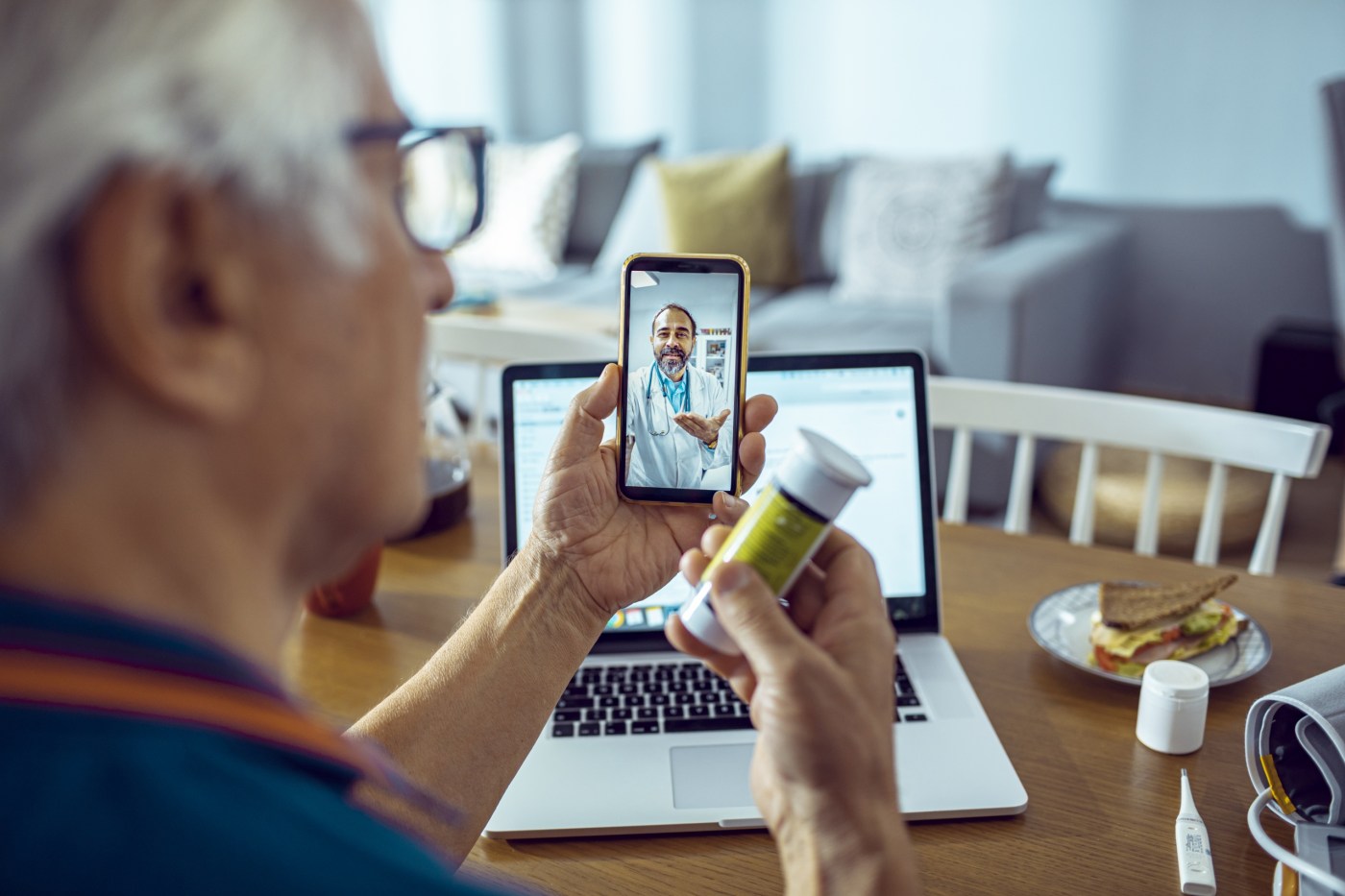Traditionally, volunteering for a clinical trial has meant traveling to a clinic for treatment or monitoring. But that is no longer always the case. The digital age has brought with it more options for patients, and VA is taking full advantage.
On Sept. 29, VA became a member of the Decentralized Trials and Research Alliance (DTRA), a nonprofit aimed at increasing access to clinical trials through telemedicine, home delivery of study medications and other methods.
According to DTRA, its members meet regularly to engage in “advancing policies, research practices, and technologies that will accelerate the global adoption of patient-focused, inclusive, decentralized clinical trials and research.”
Well-designed and rigorous clinical trials are the gold standard for providing evidence of a medical treatment’s safety and effectiveness. They are the basis for FDA approval of new drugs and medical devices.
‘We are bringing our trials to Veterans’
A top goal of VA’s Office of Research and Development (ORD) is increasing Veterans’ access to high-quality clinical trials. Through membership in DTRA, VA will share best practices, learn new methods from other organizations, and form new partnerships.
“VA has been a national leader in multisite clinical trials for decades, and increasingly we have been taking advantage of newer methods to reach Veterans where they are. We are bringing our trials to them,” notes ORD’s Dr. Grant Huang. “Our involvement with DTRA will help us further develop these approaches – to benefit Veterans and others.”
Huang directs VA’s Cooperative Studies Program (CSP), which sponsors and oversees large clinical trials spanning multiple VA medical centers. He is also VA’s deputy chief R&D officer for enterprise optimization.
DTRA, launched in December 2020, already boasts more than 100 member organizations, mostly pharmaceutical and biotechnology companies but also academic groups and now two government agencies: VA and the Food and Drug Administration (FDA). All have an interest in advancing the idea of the virtual, or decentralized, clinical trial, whereby patients don’t need to be in person at a hospital or clinic to participate.
VA leveraging decentralized approaches
Traditionally in VA, Veterans would need to show up for regular visits at a medical center – often weekly – to take part in a trial, whether to receive treatment or pick up study drugs. This could be a barrier for those living in rural areas or those with transportation, mobility or serious health challenges.
CSP has increasingly turned to technology to make it easier for Veterans anywhere in the United States to take part in trials. In some cases – especially for cancer patients – these trials may potentially offer lifesaving therapies.
In recent years, some CSP trials have used videoconferencing to allow providers to monitor patients. Others use secure phone texting to maintain contact with Veterans.
Also, in 2019, the CSP Clinical Research Pharmacy Coordinating Center in New Mexico began home delivery of study medications for some CSP trials. “This makes Veteran participation in clinical trials less burdensome,” notes Dr. Todd Conner, director of the pharmacy. So far, some 1,500 Veterans have benefited from the approach.
At least one CSP trial, testing fecal transplant therapy for C. difficile infections – a potentially severe gut illness that could result in death – involves home visits by study personnel, backed by video and phone contact.
The COVID-19 pandemic has underscored the value of virtual trials. Many trials in VA and other health systems were halted because of the restrictions on in-person visits. Some have resumed, and others are still on hold.
More Information
Click here to read the full story.
Click here to learn more about VA research.
Topics in this story
More Stories
In a new series that highlights advancements in VA health care, VA researchers and clinicians are appearing on a Veteran-themed media platform—Wreaths Across America Radio—to tout their critical work.
Recently published findings from the VA Disrupted Care National Project […]
Diverse representation of women in health care research allows MVP to make discoveries for women’s health






